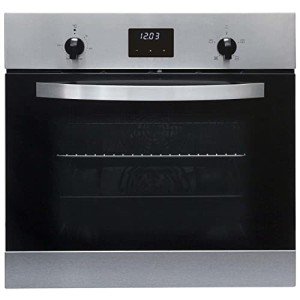5 Clarifications On Hob And Oven
Understanding Cooker Hobs and Ovens: A Comprehensive Guide
In modern cooking areas, cooker hobs and ovens are basic appliances that specify cooking routines and choices. Selecting the right combination of these devices can considerably improve culinary experience, enhance performance, and even raise home looks. This post will check out numerous aspects of cooker hobs and ovens, clarifying types, functions, advantages, and upkeep pointers, while also attending to common queries.
Kinds Of Cooker Hobs
Cooker hobs can be found in numerous types, each with distinct features dealing with different cooking styles. Here's a summary of the most common types:
Type
Description
Pros
Cons
Gas Hob
Utilizes gas burners for heating; offers immediate temperature control.
Instant heat and outstanding control.
Requires a gas connection; may be less safe.
Electric Hob
Operates using electric coils or smooth surface area; warms up slowly.
Even heat distribution; simple to tidy.
Takes longer to warm up; less control.
Induction Hob
Utilizes magnetic fields to heat pots directly, making it energy effective.
Fast cooking; energy-efficient.
Needs suitable pots and pans; more pricey.
Halogen Hob
Utilizes halogen bulbs for immediate heat; supplies instant temperature change.
Incredibly quick heating; noticeable heat.
Consumes more power; may not evenly heat.
Choosing the Right Hob
When picking a hob, think about the following elements:
- Cooking Style: Do you choose the precision of gas, the benefit of electric, or the efficiency of induction?
- Pots and pans Compatibility: Ensure your pots and pans are compatible with the type of hob.
- Kitchen Layout: Space and style typically dictate the sort of hob that suits your kitchen.
Kinds of Ovens
Similarly, ovens have actually developed considerably, offering numerous cooking approaches that can match specific cooking styles. Here are the common types of ovens:
Type
Description
Pros
Cons
Conventional Oven
Conventional baking oven that utilizes electric or gas heat from the top and bottom.
Versatile; good for baking.
Longer preheat and cooking times.
Convection Oven
Uses a fan to circulate hot air, enabling even cooking and quicker baking times. Disperses heat equally.
Faster cooking; even browning.
Somewhat more pricey; may dry food out.
Steam Oven
Cooks food using steam, protecting nutrients and wetness.
Healthier cooking; keeps food flavor.
Takes longer to prepare; more expensive.
Microwave
Utilizes electro-magnetic radiation to heat food quickly.
Instantaneous cooking; suitable for reheating.
Minimal cooking methods; might affect texture.
Selecting the Perfect Oven
When selecting an oven, keep these consider mind:
- Cooking Habits: Are you a frequent baker or most likely to reheat leftovers?
- Area Requirements: What are the measurements of your kitchen?
- Spending plan: Consider not simply the purchase rate however also energy efficiency over time.
The Importance of Cooker Hobs and Ovens in Cooking
The ideal mix of cooker hob and oven can enhance culinary skills, enabling food lovers to experiment and create a wide variety of meals. Here are a few reasons why these devices are crucial:
- Efficiency: Modern hobs and ovens included functions that enhance cooking times and energy usage.
- Adaptability: Different cooking methods (bake, grill, roast, steam, etc) broaden the range of dishes one can prepare.
- Visual Appeal: Stylish designs can elevate the overall look of a kitchen, making it both practical and inviting.
Regularly Asked Questions (FAQs)
1. What maintenance do cooker hobs and ovens need?
- Regular cleansing after usage to avoid accumulation.
- Regular look for gas leakages (for gas hobs).
- Guaranteeing the electrical connections are secure.
2. Can I utilize any pots and pans on an induction hob?
No, induction hobs need ferrous cookware (i.e., magnetic) to function. This indicates stainless-steel and cast iron work, while glass and aluminum pots may not.
3. How do I determine the right size oven for my kitchen?
Measure your offered area and think about the volume of cooking you generally perform. Standard ovens vary in size, and larger designs generally have extra features.
4. just click the next post than standard ovens?
It depends on personal choice. Convection ovens use faster and more even cooking however might not be ideal for all baking dishes, especially those needing particular temperatures.
5. What is the typical life-span of a cooking hob and oven?
With correct care, both hobs and ovens can last anywhere from 10 to 20 years, depending on frequency of usage and maintenance.
Picking the ideal cooker hob and oven not just streamlines the cooking process however can also redefine one's culinary experience. Comprehending the various types, their benefits, and upkeep will empower consumers to make informed decisions, guaranteeing that their kitchen is equipped to manage meals from the simplest to the most elaborate. Knowledge about the capabilities of these important home appliances enables for cooking creativity and performance, eventually leading to a more pleasurable cooking journey.
